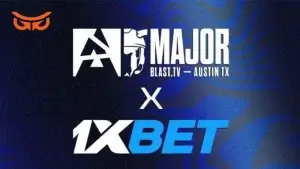In the past couple of decades, esports has evolved from having small, infrequent online events to pulling in some of the most impressive viewership stats in modern entertainment. All of this success has led to esports franchising. So, what is franchising in esports?
Franchising in Esports Explained
Franchising essentially consists of a business granting another party the rights to market its products or services within an agreed-upon geographic area. In exchange for this, the franchisee promises to use the franchisor’s established methods and procedures in their operation.
In esports, franchising works similarly. In the context of all sports, a sports franchise means ‘the contractual right granted to any person or persons to own or operate a sports team in a specified location‘. Beyond this basic definition, franchising typically involves the following parameters:
- Franchised teams – representing and stationed in a particular locality, hosting Away and Home matches while participating in a franchised league. These organizations have their own players, media rights and need to spend some money to be included in the franchised league.
- Franchised league – a glorified event organizer that also handles the rules and format of a season. They also deal with overall media rights and ensure everything runs smoothly while overlooking the contractual and financial obligations of franchised teams.
Overall, this format involves a focus on exclusivity and centrality – that is the core meaning of esports franchising.

A Dated Model for Traditional Sports
Esports franchising kicked off back in 2016 when Activision Blizzard announced the Overwatch League.
As the first-ever iteration of esports franchising, the main inspiration for the new format involved taking inspiration from traditional sports franchised leagues. With over a $10 million buy-in for interested organizations, it became the most expensive league in all of esports.
However, it is now argued that using traditional sports as a model is in fact, dated. If not traditional sports franchising, what is franchising in esports?
Franchising in Esports as a Commitment
The meaning of esports franchising, outside of exclusivity and centrality, is a strong commitment and belief in a particular game.
Considering how young franchising in esports is in 2023, with many esports simply trying it out, only time will tell as to whether this commitment pays off.
However, do note that esports franchising comes in many forms, with event organizers trying variations of the traditional structure seen in North American sports.
Does Esports Franchising Work?
Diving into esports franchising requires a number of things. Above all else, the game needs to be successful. But that’s not all, it also needs to have a future trajectory worth investing in. Lastly, each game must be supported by esports organizations, professionals, the community and all stakeholders.
Here’s a look at some of the pertinent examples of franchising in esports:
- Overwatch – Overwatch League
- Call of Duty – Call of Duty League
- League of Legends – Regional Franchised Leagues (LCK, LEC, LCS, LPL)
- VALORANT – VCT 2023 Franchised/Partnership Model
Of course, the question at hand is simple – is franchising good for esports?
When discussing the good and the bad, we need to consider three perspectives – the community, professionals/organizations and the event organizers. It’s also worth remembering that advantages and disadvantages vary depending on the particular example.

The Esports Franchise Model – What’s Good?
With millions of prizes in a franchised model, these are some of the main benefits when considering the esports franchise model:
- Community – all the competitions in one league, long-term commitment to organizations, elevated production quality and the opportunity to support local organizations.
- Professionals/Organizations – minimum salaries and job stability, usually no fear of relegation, viewership rights and exclusivity, an opportunity to build a local fanbase and fewer events to worry about.
- Event Organizers – simplified organizing of events, the opportunity to host some epic events, media rights and advertising.
Is franchising a good thing for esports? The short answer is it’s too soon to tell. There are definite advantages and disadvantages to both options and it’s truly a matter of time until fans find out.
Bad Side of Esports Franchising – Unpredictable Growth
Here are the aspects of esports franchising which have proved to be disadvantageous:
- Community – exclusivity of competition and esports tournaments usually leads to a calendar year with gaps in the action between events. Media rights can act as a barrier for third-party content and the format can be stale if not changed with time.
- Professionals/Organizations – exclusivity can restrict opportunities to compete, contracts can be restrictive, organizations need to invest a lot of money and remuneration is not guaranteed.
- Event Organizers – there could be pressure from stakeholders to ensure everything runs smoothly, considering the money at stake.
Overall, the most concerning aspect regarding esports franchising is the lack of knowledge and expertise as to whether it will pay off in the long term.
The esports industry is parallel to the video game industry, where products often expire at a certain point. With so many jobs on the line, trusting that a game will stay up to par over multiple years is a risk.
Many event organizers have experimented with the structure of esports franchising as discussed in the following examples.
Franchising in Esports: Discussing Examples
OWL and CDL: Sticking to NA Franchising
As we mentioned, in 2016, Activision Blizzard asked the following questions for the first time – is franchising a good thing for esports and what is franchising in esports?
To do so, they created the Overwatch League, inspired by North American traditional sports franchising. Initially, thanks to the immense popularity of Overwatch, the franchise succeeded immensely, so much so, that they expanded and added more teams quickly.
However, later down the line, viewership would stagnate as Blizzard signed an exclusivity viewership deal with YouTube. The unfortunate lack of excitement around Overwatch proved to challenge sustainability, this year undergoing many changes.
Similarly, 2020 saw the reveal of the Call of Duty League, which has also enjoyed some success in the US. Releasing a new title every year has helped the esports franchise maintain excitement.
League of Legends: Potentially the Best Example of Esports Franchising
The best esports ecosystems which made use of a franchise-like structure are the LoL leagues.
Little tweaks, such as allowing teams to retain their original organization names and not have to rebrand locally, helped these esports franchised leagues grow quickly. This focus on exclusivity and sustainability is what has helped franchising League of Legends be the best example of the model in modern times.
Furthermore, the competitive structure is very simple and LoL Worlds every year sees a respectable number of viewers watching LoL Esports.
VALORANT Esports: A Unique Structure
The youngest esport on this list, Riot Games took competitive VALORANT tournaments to the next level in 2023.
How does franchising in VALORANT work? Unlike other models requiring a buy-in, Riot Games has gone for a ‘partner program’ where participating organizations are hand-picked by Riot Games and supported financially, rewarding early commitment to the game.

Hosting regional leagues this year, with multiple levels of competition, VALORANT franchising teams are in a position to make waves in the entire esports industry.
Rocket League: Potential Esports Franchising Candidate
Lastly, we have one of the most prominent up-and-coming games in the esports world.
Perhaps one of the most beloved esports in the world, Rocket League has immense potential. Popular across the globe, a modified Rocket League esports franchising structure could reap some massive benefits and accelerated growth. Rumors of franchising since 2019 have not yet been confirmed.
Time Will Tell
For some, esports franchising is an idea that went a little too far. For others, it’s the future of esports.
In our opinion, franchising in esports is a concept that by using the core principles and not simply copying traditional sports, could result in the continuous expansion of esports.























